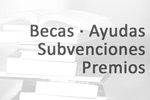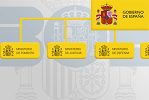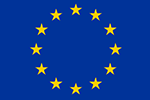Combating counterfeiting
Content
Combating counterfeiting
The Spanish Patents and Trade Mark Office (OEPM) is responsible for ‘promoting initiatives and carrying out activities that aim to improve knowledge and promote the most suitable protection of industrial property’.
Counterfeiting poses a major threat to innovation, economic growth, social welfare and health, within Spain, within the European Union and worldwide. The increase in the number of counterfeit products in world trade is deeply concerning and clearly requires coordinated action at all levels in order to be addressed fully.
The OEPM actively helps to ensure that industrial property rights are respected, and promotes and participates in initiatives such as the following.
- Multi-sector committee for action against activities that infringe industrial property rights. Coordination between public administrations and with private organisations dedicated to protecting industrial property rights in order to examine, propose and take action to prevent and eliminate behaviour that is an infringement of these rights. The Committee acts as a channel for the actions required to fulfil the aims of the Observatorio Europeo para la lucha contra la falsificación [European Observatory to Combat Counterfeiting].
Bureau against illegal practice of a profession. Set up by the Ministry of Industry and Tourism to coordinate the public and private sectors in order to prevent and eliminate behaviour that is an infringement of industrial property rights.
Awareness campaigns
-
The counterfeiting problem
The phenomenon of buying and selling counterfeit products is a global problem with international trade estimated at up to EUR 460 billion, according to the latest report published by the European Union Intellectual Property Office (EUIPO) and the Organisation for Economic Co-operation and Development (OECD). Consult the full report.

Counterfeiting is a widespread and global phenomenon. Public and private bodies are both responsible for combating and eradicating it, due to the following.
- It destroys jobs: around 53 500 jobs per year.
- It harms trade in cities as it promotes unfair competition.
- It harms Spain’s economy, with almost EUR 7 million in sales lost.
- It promotes the shadow economy, in which taxes and duties are not paid, leading to impoverishment for everyone.
- Counterfeits do not pass the quality controls that ensure safe consumption.
- Counterfeiting poses significant health and safety risks.
- This activity is controlled by organised crime.
- It is the second most profitable form of trafficking by criminals after arms trafficking.
- The criminal organisations that profit from counterfeit products use illegal and itinerant sellers.
- They jeopardise innovation by adversely affecting consumer access to new products.
- Rights as consumers are lost.
More information about further sectors affected by counterfeiting and how to prevent it.

-
How to take action against counterfeiting
Actions relating to combating counterfeiting and forgery can be taken on two levels or in two different areas: when such products are already on the Spanish market, or at the point of entry into Spain, and therefore on the European Union internal market, at any border checkpoint.
-
Actions within the Spanish market
The OEPM always recommends the following.
- That, before pursuing litigation, contact be made with the potential perpetrator by a reliable means of communication (‘burofax’ or equivalent), requesting, out of court, that they cease their conduct infringing the requester’s rights.
- If this initiative has already been taken unsuccessfully, the next step would be to file a complaint.
The complaint may be formalised in writing or verbally in the form of a declaration, in which the identity of the complainant must be recorded, along with any reports on the event and its circumstances. This information is of great help when guiding and expediting the actions of the Spanish law enforcement officials.
To file a complaint, please contact the Spanish law enforcement officials using the following telephone numbers and addresses: Policía Nacional [national police force] (091) Policía municipal [Municipal police force] (092). You can also approach the closest Guardia Civil department or contact 062.
It would be advisable to contact a lawyer specialising in industrial property, therefore we recommend that you contact the Colegio Oficial de Agentes de la Propiedad Industrial [ Official Association of Industrial Property Agents
 ].
].Offences committed against duly registered industrial property rights are subject to prosecution ex officio.
Moreover, for cases involving an ex officio procedure, since early 1999 the OEPM has had a point of contact responsible for making it possible to properly prosecute industrial property offences. Through this point of contact, the OEPM collaborates actively with the Spanish law enforcement officials, providing information in real time on holders of industrial property rights and their representatives to the OEPM. The contact details for the point of contact are as follows.
Telephone: +34 910780780 / +34 913496817
Email: Tribunales@oepm.es
-
Actions at customs frontiers
Ex officio action taken by the customs authorities.
Interested parties may also submit their application for intervention to hold goods suspected of infringing industrial property rights. Applications should be sent to the Subdirección General de Gestión Aduanera [Sub-directorate-general of Customs Management] of the Departamento de Aduanas e Impuestos Especiales [Customs and Excise Department].
Once the application and supporting documents for the existence and validity of the rights have been submitted, and in view thereof, it may be accepted that the goods should be held, thus preventing them from entering commercial distribution channels.
The goods may be held for an unlimited period, and the corresponding application, or a request for replacement with the corresponding interim measure, must be submitted within a maximum period of 10 days.
For more information about customs procedures, please visit the website of the Agencia Estatal de la Administración Tributaria (AEAT) [ Spanish National Agency for Tax Administration
 ].
].










